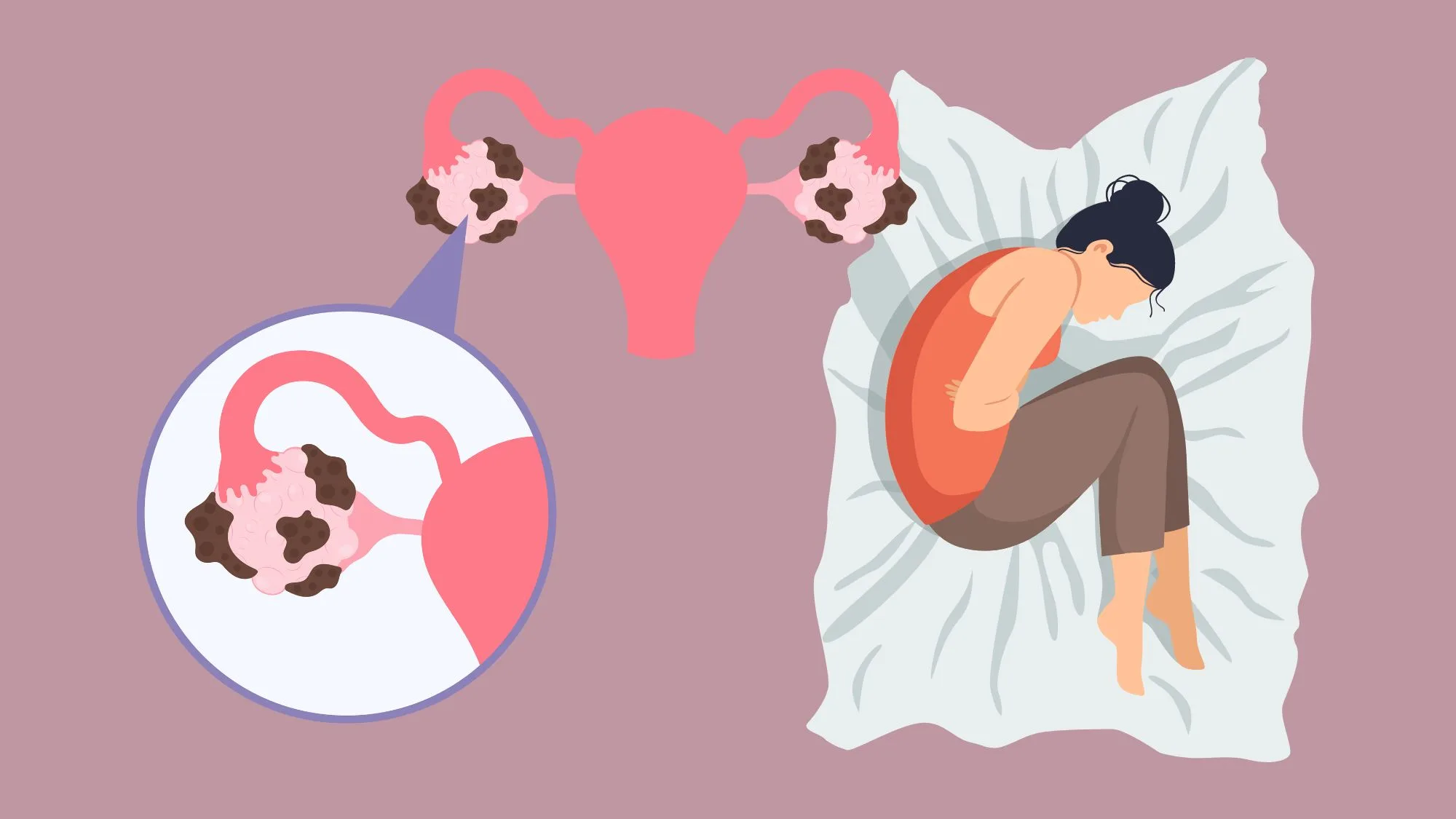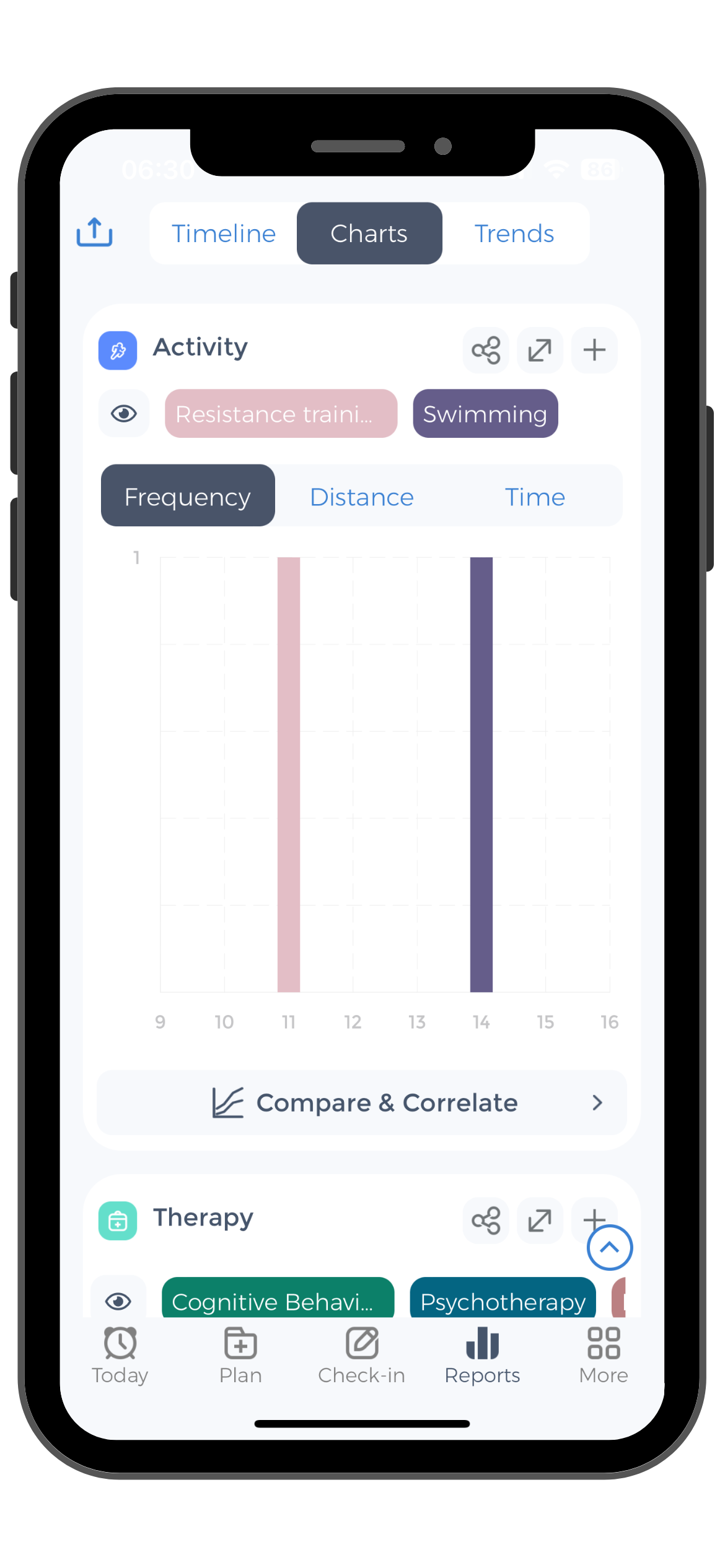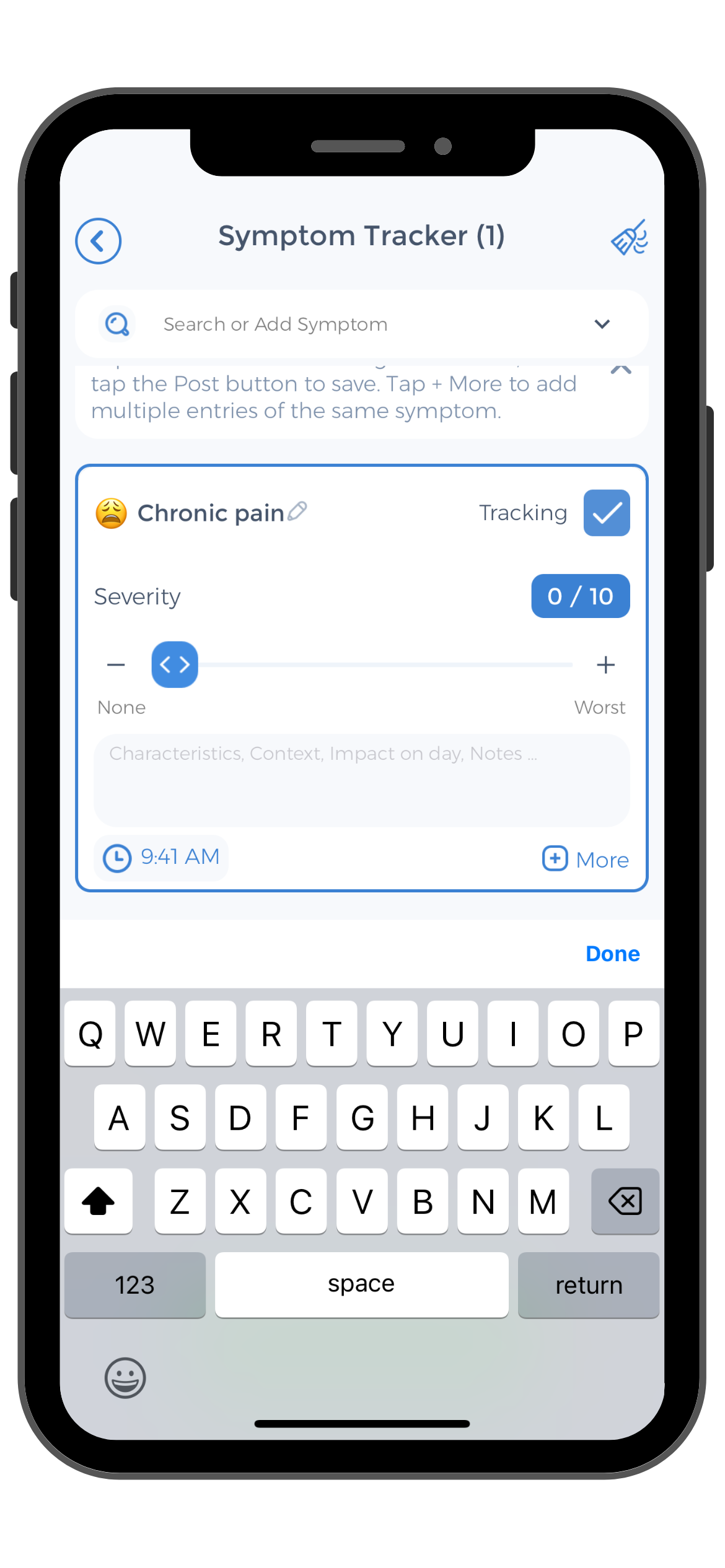
Endometriosis is a complex and often misunderstood condition that affects many women worldwide. For those who live with it, the pain can be debilitating and have a significant impact on their daily lives. In this article, we will explore the nature of endometriosis’s intense pain, strategies for managing it, and how to effectively communicate about it to healthcare providers, family, and friends.[1][2]
Understanding Endometriosis: What is Endometriosis?
Endometriosis is a chronic condition where tissue similar to the lining of the uterus, known as the endometrium, grows outside of the uterus. This abnormal growth can be found on various organs within the pelvic region, such as the ovaries, fallopian tubes, and even the intestines.
Endometriosis is not just a physical condition; it also has significant emotional and mental health implications for those affected. The journey of living with endometriosis involves navigating through a range of emotions, from frustration and anxiety to hope and resilience. It requires a holistic approach to managing both the physical symptoms and the psychological impact of the disease.
Patients with endometriosis often experience symptoms such as pelvic pain, painful periods, infertility, and fatigue. The severity and frequency of these symptoms can vary from person to person.
The Impact of Endometriosis on Women’s Health
Endometriosis can have a profound impact on a woman’s physical, emotional, and psychological well-being. The chronic pain associated with the condition can disrupt daily activities and relationships, leading to feelings of frustration, isolation, and depression.
Moreover, the fertility implications of endometriosis can be distressing for those hoping to start a family. It is crucial to have a comprehensive understanding of the condition in order to effectively manage its common symptom up to severe symptoms and seek appropriate medical interventions and pain medication.
Living with endometriosis often requires a multidisciplinary approach to care, involving healthcare providers from various specialties such as gynecology, pain management, and mental health. Support groups and online communities can also play a crucial role in providing a sense of belonging and understanding for individuals navigating the challenges of endometriosis.[3][4][5][6][7]
The Nature of Endometriosis Pain
Physical Symptoms of Endometriosis
The common endometriosis symptoms can vary, but often include pelvic pain, particularly during menstruation. This pain associated with endometriosis may also occur during sexual intercourse, bowel movements (irritable bowel syndrome), or urination. Other symptoms can include lower back pain, bloating, and gastrointestinal disturbances.
To manage these physical symptoms, a multi-faceted approach is often necessary. Medical treatments such as hormonal therapies or surgical interventions may be recommended by healthcare professionals. Additionally, lifestyle changes and home remedies can be effective in reducing pain and promoting overall well-being.
Endometriosis is a condition where tissue similar to the lining of the uterus grows outside of the uterus, causing inflammation and scarring. This abnormal tissue growth can lead to the formation of adhesions, which are bands of fibrous tissue that can cause reproductive organs to stick together, resulting in further pain and complications.
Emotional and Psychological Effects of Period Pain and Menstrual Cramps
Living with chronic pain can take a toll on one’s emotional and psychological state. The constant discomfort and disruption to daily life can lead to feelings of anxiety, depression, and decreased self-esteem.
It is essential to acknowledge and address the emotional impact of endometriosis pain. Engaging in self-care practices such as meditation, journaling, or seeking support from therapists or support groups can be beneficial. The CareClinic App offers a range of resources and features to track symptoms, manage medication schedules, and provide educational content to facilitate emotional well-being and pain management.
Support from loved ones and healthcare providers is crucial in managing the emotional burden of endometriosis. Open communication about feelings and concerns can help individuals feel heard and supported in their journey towards better mental health and pain management.[8][9]
 Living with chronic pain can take a toll on one’s emotional and psychological state. The constant discomfort and disruption to daily life can lead to feelings of anxiety, depression, and decreased self-esteem.
Living with chronic pain can take a toll on one’s emotional and psychological state. The constant discomfort and disruption to daily life can lead to feelings of anxiety, depression, and decreased self-esteem.
It is essential to acknowledge and address the emotional impact of endometriosis pain. Engaging in self-care practices such as meditation, journaling, or seeking support from therapists or support groups can be beneficial. The CareClinic App offers a range of resources and features to track symptoms, manage medication schedules, and provide educational content to facilitate emotional well-being and pain management.
Support from loved ones and healthcare providers is crucial in managing the emotional burden of endometriosis. Open communication about feelings and concerns can help individuals feel heard and supported in their journey towards better mental health and pain management.
Communicating About Endometriosis Pain
Describing Pain to Healthcare Professionals
When discussing your endometriosis pain with healthcare professionals, it is important to be as clear and descriptive as possible. Use specific terms to explain the location, intensity, and duration of your pain. Sharing a pain diary or using pain scales can help convey your experiences effectively.
It can also be beneficial to provide details about how the pain impacts your daily activities and quality of life. Mention any specific activities that become challenging due to the pain, such as exercise, work, or social engagements. This additional information can give healthcare professionals a comprehensive understanding of the limitations you face.
Furthermore, it is helpful to mention any triggers or factors that worsen or alleviate your pain. This information can assist healthcare professionals in formulating an accurate diagnosis and developing an individualized treatment plan. The CareClinic App allows for easy tracking and documentation of symptoms, making it a useful tool for enhancing communication with healthcare providers.
Discussing Endometriosis with Family and Friends
Endometriosis is often an invisible condition, as the symptoms are not always externally apparent. As a result, loved ones may struggle to understand the magnitude of the pain you experience.
Open and honest communication is vital in helping family and friends comprehend the impact of endometriosis on your life. Share educational resources or refer them to reputable websites to increase their understanding of the condition. Discuss the challenges you face and let them know how they can offer support, whether it be through emotional support, assisting with daily activities, or accompanying you to medical appointments.
It can also be helpful to explain the emotional toll of living with chronic pain and how endometriosis affects your mental well-being. By sharing your feelings and experiences, you can foster empathy and create a stronger support system within your circle of family and friends. Encourage open dialogue and be patient as your loved ones navigate understanding and supporting you through your endometriosis journey.
Strategies for Managing Endometriosis Pain
Medical Treatments and Interventions
Managing severe endometriosis and debilitating pain often requires a combination of medical treatments and interventions. Hormonal therapies, such as birth control pills or hormonal IUDs, can help regulate the menstrual cycle and reduce pain. These treatments work by suppressing the production of estrogen, which is responsible for stimulating the growth of endometrial tissue outside the uterus.
In some cases, surgical interventions may be necessary. Laparoscopic surgery can remove endometrial implants, scar tissue, or cysts, providing relief from pain and potentially improving fertility. During this minimally invasive procedure, a small incision is made in the lower abdomen, allowing the surgeon to insert a thin, lighted tube with a camera (laparoscope) to visualize and remove the abnormal tissue.
However, it is important to note that each person’s treatment plan will be unique, based on their specific symptoms and goals. You should consult with a healthcare professional to determine the most suitable course of action. They will consider factors such as the severity of your symptoms, your desire for future fertility, and your overall health when recommending a treatment approach.
The CareClinic App can be a valuable resource for managing medical treatments, tracking symptoms, and setting medication reminders to ensure adherence to treatment plans. With features like medication tracking and symptom diary, the app can help you stay organized and informed about your endometriosis management.
Lifestyle Changes and Home Remedies
Alongside medical treatments, lifestyle changes and home remedies can play a significant role in managing endometriosis pain. These can include:
- Dietary Modifications: Certain foods, such as inflammatory foods or those high in caffeine and sugar, can exacerbate pain. Incorporating an anti-inflammatory diet rich in fruits, vegetables, whole grains, and lean proteins can help reduce inflammation and manage symptoms. Additionally, some studies suggest that omega-3 fatty acids found in fish oil may have anti-inflammatory properties that can benefit many patients with endometriosis.
- Exercise: Regular physical activity can alleviate pain by improving circulation and releasing endorphins, which are natural painkillers. Low-impact exercises such as swimming, yoga, or walking can be particularly beneficial for those with endometriosis. These activities not only help manage pain but also promote overall well-being and reduce stress levels.
- Stress Management Techniques: Endometriosis pain can be influenced by stress and tension. Engaging in stress-reducing activities such as deep breathing exercises, mindfulness meditation, or relaxation techniques can help alleviate pain and promote overall well-being. The CareClinic App offers features such as guided meditation or mood tracking to facilitate stress management. Additionally, seeking support from a therapist or joining a support group can provide emotional support and coping strategies for dealing with the challenges of living with endometriosis.
While these lifestyle changes and home remedies can be beneficial in managing endometriosis pain, it is important to remember that they should complement, not replace, medical treatments. It is always best to consult with a healthcare professional to develop an effective treatment plan tailored to your specific needs.
Advocating for Better Endometriosis Care
Importance of Awareness and Education
 Advocacy and raising awareness are essential in improving endometriosis care. By educating ourselves and others about the condition, we empower individuals to seek proper diagnosis and treatment option, while reducing the stigma surrounding endometriosis.
Advocacy and raising awareness are essential in improving endometriosis care. By educating ourselves and others about the condition, we empower individuals to seek proper diagnosis and treatment option, while reducing the stigma surrounding endometriosis.
Supporting organizations and initiatives that promote endometriosis awareness can make a significant impact. Sharing personal experiences, participating in awareness events, or engaging in social media campaigns can help create a supportive environment for those living with endometriosis.
When it comes to endometriosis, education is key. Understanding the common symptoms, causes, and available treatment options is crucial in order to provide the best care and support for those affected by this condition. By expanding our knowledge and sharing it with others, we can help bridge the gap between the medical community and those living with endometriosis.
One way to empower ourselves and others is by connecting with support groups. These groups provide a safe space for individuals to share their experiences, seek advice, and find solace in knowing that they are not alone in their journey. Whether it’s an online forum or an in-person support group, the sense of community and validation that comes from connecting with others who understand can be truly transformative.
Empowering Yourself and Others in the Fight Against Endometriosis
Facing endometriosis and abdominal pain can be challenging, but it is important to remember that you are not alone. Connecting with support groups, both online and offline, can provide a sense of community and validation.
Additionally, empowering others by sharing your knowledge and experiences can make a significant impact. By educating yourself about endometriosis, utilizing resources such as the CareClinic App, and spreading awareness, you contribute to the collective efforts in improving endometriosis care and support systems.
It is also crucial to advocate for better endometriosis care on a systemic level. This can involve reaching out to policymakers, healthcare providers, and organizations to push for increased funding, research, and access to quality care. By amplifying our voices and demanding change, we can help create a future where endometriosis is better understood, diagnosed, and treated.
Advocating for better endometriosis care is a multifaceted endeavor that requires a comprehensive understanding of the condition, effective communication skills, and a commitment to making a difference. By embracing a multi-faceted approach that combines medical interventions, lifestyle changes, and open dialogue, we can improve endometriosis care and support for individuals living with this chronic condition.
Use the CareClinic App to Track Endometriosis Symptoms
Take control of your endometriosis management with the CareClinic App, a comprehensive tool designed to help you track and manage your symptoms. By documenting your pain levels, menstrual cycles, and medication schedules, the app enables you to identify patterns and triggers that affect your condition. With features like the symptom tracker and medication reminders, you can gain insights into what works best for your body and communicate more effectively with healthcare professionals.
Download the CareClinic App to Keep Track of Painful Periods
Experience the benefits of personalized health management by using the CareClinic App to stay on top of your endometriosis care. The app’s easy-to-use interface allows you to monitor your progress and adjust your treatment plan as needed, leading to improved health outcomes. Don’t let endometriosis dictate your life; instead, empower yourself with the right tools. Install the App today and take the first step towards better health.
References
- “‘Medical misogyny’: UK waiting list for endometriosis diagnosis hits nine years”. https://www.ft.com/content/d5f8306b-d5e5-4583-ba5b-aefff4d44cab
- “Addressing Challenges in Endometriosis Pain Communication Between Patients and Doctors: The Role of Language”. https://pubmed.ncbi.nlm.nih.gov/34870277/
- “Stigma and mental health in endometriosis – PMC”. https://pmc.ncbi.nlm.nih.gov/articles/PMC10465859/
- “The emotional impact of endometriosis | White Swan Foundation”. https://www.whiteswanfoundation.org/mental-health-matters/body-and-mind/endometriosis-the-emotional-impact-of-physical-pain
- “Anxiety and depression in patients with endometriosis: impact and management challenges – PMC”. https://pmc.ncbi.nlm.nih.gov/articles/PMC5440042/
- “The Importance Of Mental Health Support While Managing Endometriosis | EndoFound”. https://www.endofound.org/the-importance-of-mental-health-support-while-managing-endometriosis
- “Emotional support for endometriosis | Endometriosis UK”. https://www.endometriosis-uk.org/emotional-support-endometriosis
- “What are the symptoms of endometriosis? | NICHD – Eunice Kennedy Shriver National Institute of Child Health and Human Development”. https://www.nichd.nih.gov/health/topics/endometri/conditioninfo/symptoms
- “Anxiety and depression in patients with endometriosis: impact and management challenges – PubMed”. https://pubmed.ncbi.nlm.nih.gov/28553145/
- “Family and friends – Endometriosis Cymru”. https://endometriosis.cymru/living-with/family-and-friends/


